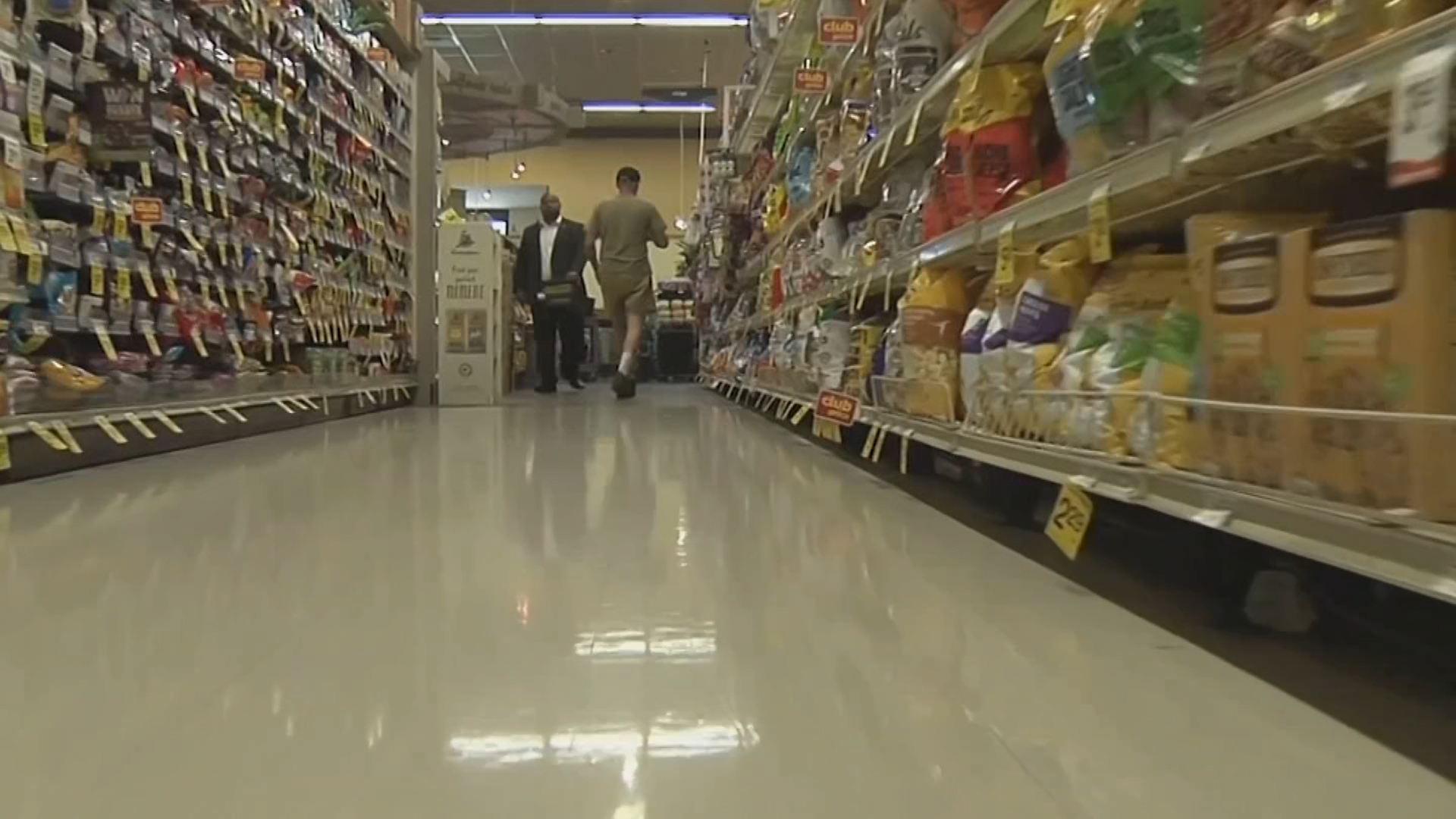The federal corruption trial of former Chicago Ald. Ed Burke was delayed Thursday after one of the attorneys tested positive for COVID-19, pushing opening statements in the closely watched proceedings back by a week.
Burke and attorneys on both sides filed into the courtroom wearing masks Thursday. Judge Virginia Kendall announced the positive test result, adding that two other attorneys were not feeling well and likely to test positive themselves.
She dismissed the jurors and paused the proceedings until Nov. 16 in accordance with CDC guidelines, cautioning everyone: “Stay healthy and make sure you drink your orange juice and get your sleep.”
The trial began Monday but was already expected to have days off Friday for Veterans Day, as well as on Nov. 14 and 15 due to a prior obligation impacting the judge’s schedule.
Feeling out of the loop? We'll catch you up on the Chicago news you need to know. Sign up for the weekly Chicago Catch-Up newsletter here.
The trial – years in the making – still doesn’t have a jury after three full days of jury selection, in which Kendall and attorneys individually questioned 54 prospective jurors. Sixteen were struck for cause, leaving 38 who survived to the next round. They need nine more to make it through the questioning, for a total of 47 prospective jurors, before moving forward in the process to ultimately seat 12 jurors and 4 alternates.
Prior to the positive COVID-19 test, Kendall on Wednesday afternoon pushed attorneys to speed up questioning of prospective jurors in order to finish jury selection by lunchtime Thursday. Now, selection will continue the morning of Nov. 16, with opening statements expected that afternoon.
The scheduling setback came just hours after a back-and-forth between prosecutors and defense attorneys late in the day Wednesday gave a glimpse of the showdown to come.
Chicago Politics
Long the city’s most powerful alderman, Burke was indicted in 2019 on 14 counts of racketeering, extortion and bribery, accused of using his official positions as 14th Ward alderman and Finance Committee chair to steer business to his private law firm. Also indicted were Burke’s aide Peter Andrews and developer Charles Cui.
Those charges came about after the feds convinced then-City Council colleague Danny Solis – under criminal investigation himself – to wear a wire on Burke for two years.
Those bombshell recordings will be played for the first time during the trial, but the big question remains: will Solis testify?
Prosecutors maintain they do not plan to call Solis as a witness, but defense attorneys again Wednesday insisted they will, in order to detail his cooperation with the feds. Solis signed a deferred prosecution agreement in 2018.
Burke’s defense attorneys told prosecutors and the judge on Wednesday that while they will call Solis as a witness, they won’t directly say that to the jury in their opening statements, which serve as a “preview of the evidence that the jury’s going to hear,” said former federal prosecutor Dylan Smith.
That maneuver enables them to discuss Solis and his motivation, but leaves them “wiggle room” to back out of calling him if they decide it’s too risky, according to Smith.
“Trials are really about dueling narratives, dueling stories,” Smith said. “When you’re a defense lawyer, one of the things that’s difficult about that is putting together evidence that you can use when you ultimately argue your case to the jury in closing.”
“You have to work backwards from your closing argument, in a sense, and think about what you can piece together that will give you something to argue with,” Smith continued. “I suspect that the defense may be strongly considering calling Solis to give them something that they can argue, for example, that the schemes that Burke is charged with participating in really were manufactured by the agents and prosecutors in cooperation with Mr. Solis and that Mr. Burke’s conduct is being taken out of context.”
“Their hope would be to essentially tar the government’s case with whatever baggage they can elicit about Mr. Solis,” he added.
“At the same time, you don’t necessarily want to promise to the jury that they’re going to hear from Solis, because at that point you’ve set expectations,” Smith said. “Why lock yourself in if there’s some chance that you’ll decide on balance the risks outweigh the benefits to calling him?”
“From the government’s standpoint, they’ve made a decision apparently that they can admit the evidence in the form of recordings that were made of Burke without needing to call Solis and exposing him to cross-examination from the defense about what they would argue is the sweetheart deal he received,” Smith continued. “On the other hand, it is risky for the defense because Solis, after all, can provide a lot of context for those recordings and maybe things get worse when you hear from him. So there are risks on both sides there.”
Prosecutors raised the issue of defense attorneys discussing Solis in openings at the end of the day Wednesday, arguing references to Solis’ motivation would be “not relevant or probative until such time as he testifies in this case,” said Assistant U.S. Attorney Diane MacArthur.
But Kendall said she would take defense attorneys, “as officers of the court,” at their word that they planned to call Solis and thus could discuss the alderman-turned-mole in their opening statements.
“They may be stuck at the end,” she told prosecutors. “No defense attorney wants to say something and have you say, ‘Where was that?’”



